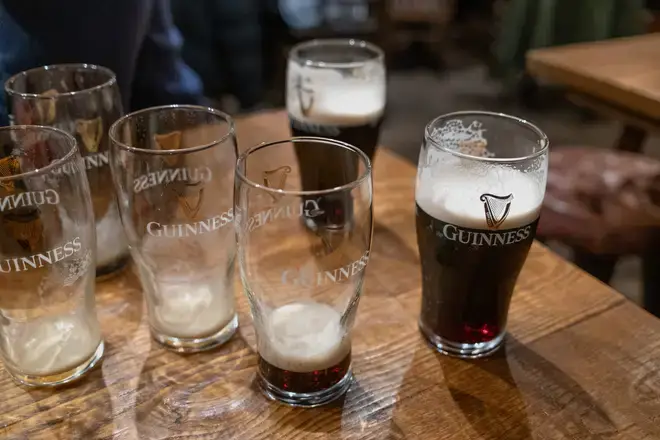Ministers in England have been urged to introduce a minimum price for alcohol as officials announced plans to increase the measure in Wales.
Leading alcohol health experts urged the UK Government to take steps to "protect the public", including the introduction of minimum unit pricing (MUP) – a policy which sets the lowest price an alcoholic drink can be sold for.
MUPs have already been introduced in Scotland and Wales.
A consultation was launched by Welsh officials on Wednesday to maintain MUP for alcohol in Wales beyond March 2026, and raising the unit price from 50p to 65p.
The Welsh Government said that the number of harmful drinkers could be reduced by nearly 5,000 people as a result of the plans.
It comes as officials in England have been urged to introduce a MUP after health experts warned that plans to tackle problem drinking "are not sufficient to address the scale and complexity of harm."
Academics, medics and charities from around the country have urged ministers to take "ambitious" action to tackle the "scale of the current crisis."
The UK Government recently set out plans to improve the health of people in England over the next decade.
But in a letter to Health Secretary Wes Streeting, shared with the PA news agency, experts said that the public "want and deserve" more action to tackle the harms.
The letter has been signed by 34 health leaders from leading health organisations including the Alcohol Health Alliance; the Royal College of Physicians; the Royal College of General Practitioners and the Royal College of Emergency Medicine.
Experts have called for a series of measures, including:
– A call for the introduction of MUP in England, as seen in Scotland and Wales.
– Giving local authorities the power to regulate hours of sale and online deliveries of alcohol.
– For advertising regulations for alcohol to be "aligned" with those for foods high in fat, salt and sugar.
– A change to alcohol tax, linking duties to inflation and ending "cider exceptionalism."
– More funding and support for local alcohol care teams.
The authors conclude: "The public want and deserve action, and we stand ready to work with Government to deliver real progress.
"By taking meaningful and co-ordinated action now, the burden of alcohol harm can fall significantly within the term of this Government, with visible results for families, the NHS, crime, and the economy."
The Department of Health and Social Care said it will continue to consider the most effective interventions to reduce alcohol harms.
A spokesperson said: "As we shift from sickness to prevention through our 10-Year Health Plan, we will make it mandatory for alcoholic drinks to display health warnings and nutritional information.
"To improve drug and alcohol treatment services and recovery support in England, the Government has also provided an additional £310 million in 2025/26, on top of the public health grant."
A spokesperson for the Portman Group said: "As the alcohol industry regulatory body for marketing, we welcome the chance to work constructively with the Government on the proposals within its 10 year plan to help more consumers make an informed choice and drink moderately."


